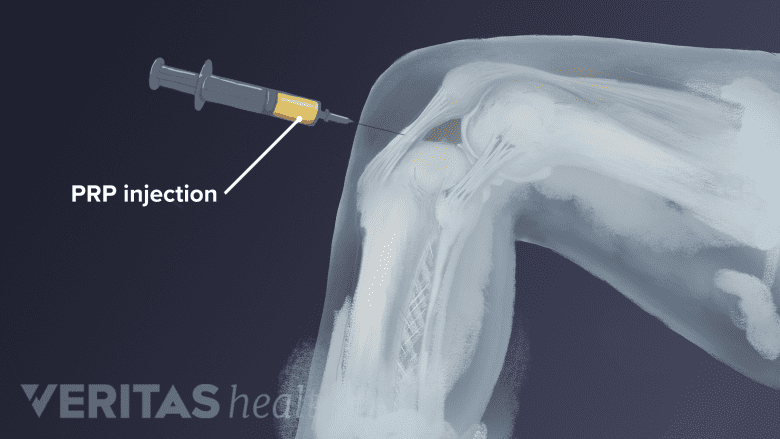Many PRP treatment variables are left up to individual doctors, so doctor selection may play a large role in whether or not platelet-rich plasma (PRP) therapy is effective.

Choosing the right doctor for PRP therapy should take into consideration a doctor's experience and training.
In This Article:
- Platelet-Rich Plasma (PRP) Therapy for Arthritis
- PRP Injection Preparation and Composition
- Efficacy of Platelet-Rich Plasma Injections
- Potential Pros and Cons of PRP Injections
- Choosing a PRP Therapy Doctor
- Who Is a Candidate for Platelet-Rich Plasma Therapy?
- Platelet-Rich Plasma Injection Procedure
Questions to ask
When selecting a physician for platelet-rich plasma therapy, patients may want to ask:
- How does the doctor diagnose and assess the problem? A diagnosis of osteoarthritis should be verified with imaging technology, such as an X-ray, any time surgery or injections are being considered. In addition to a specific diagnosis, the doctor should assess whether or not the condition is too severe to be treated with PRP therapy.
Read more about Orthopedic Surgeon and Injections
- What training does the doctor have performing PRP injections? The International Cellular Medicine Society recommends that a doctor offering PRP therapy has either participated in a formal training course or has had extensive one-on-one training with an experienced doctor.
- Does the doctor use ultrasound, fluoroscopy, or computed tomography (CT scan) to guide injections? Most experienced orthopedic and sports medicine physicians are able to make accurate injections into certain joints (e.g. knees) without the need for imaging; however, in some cases imaging technologies may be used to ensure that the injections are made precisely to the joint capsule.
- What is the doctor's experience and success rate for treating osteoarthritis with PRP injections? PRP injections are used to treat a number of different joint conditions, and patients may want to confirm that the physician is familiar with using PRP specifically for treating osteoarthritis.
Before administering platelet-rich plasma injections, a doctor should also explain the:
- Potential Risks
- Possible benefits
- Steps of the procedure
- Follow-up protocol, which should include at least one follow-up appointment
- Cost of the procedure
A doctor may also have the patient sign an informed consent form stating that the patient understands that platelet-rich plasma therapy is an elective procedure and that certain risks and side effects do exist.
Cost
Intra-articular injections of platelet-rich plasma to treat osteoarthritis are considered "experimental" by most insurance companies. A single treatment of one joint can cost $400 to $2,000, paid out-of-pocket by the patient.1Platelet Rich Plasma (PRP) Therapy Reimbursement Overview. www.rsmedical.com. Copyright © 2012 RS Medical.,2Biologic Orthopedic Society. 2013. LinkedIn. Discussion Page: What should the total reimbursement be to a provider for platelet rich plasma (PRP) procedure including any cost of goods and services and the office visit? Retrieved September 24, 2013. (If more than one joint is treated, the cost increases but typically does not double.)
- 1 Platelet Rich Plasma (PRP) Therapy Reimbursement Overview. www.rsmedical.com. Copyright © 2012 RS Medical.
- 2 Biologic Orthopedic Society. 2013. LinkedIn. Discussion Page: What should the total reimbursement be to a provider for platelet rich plasma (PRP) procedure including any cost of goods and services and the office visit? Retrieved September 24, 2013.

